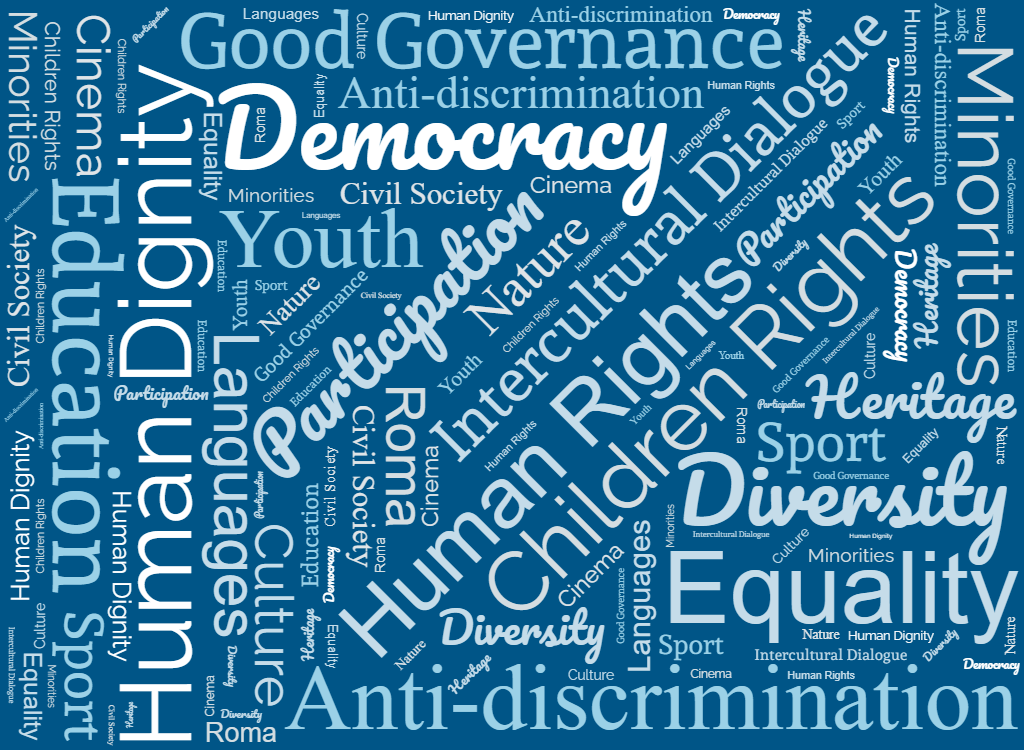Council of Europe treaties and Directorate General of Democracy and Human Dignity
A treaty is "an international agreement concluded between States in written form and governed by international law, whether embodied in a single instrument or in two or more related instruments and whatever its particular designation" (See Article 2 of the Vienna Convention).
The European Treaties Series contains «conventions», "agreements", "charters", "codes", "framework convention» and «outline convention". All these legal instruments are treaties as defined by the Vienna Convention.
The sole difference between "conventions" and "agreements" is the form in which a State may express its consent to be bound. Agreements may be signed with or without reservation as to ratification, acceptance or approval. Conventions may, in principle, be ratified. See Model final clauses for conventions and agreements concluded within the Council of Europe.
The treaties concluded within the Council of Europe are multilateral treaties, which means that they are concluded between more than two States. Only two bilateral treaties were concluded within the Council of Europe. They were concluded between the Council of Europe and France, hosting State of the Organisation: the Special Agreement relating to the seat of the Council of Europe, 2 September 1949, and the Supplementary Agreement amending certain provisions of the General Agreement on Privileges and Immunities of the Council of Europe, 18 March 1950.
 2024: 70th anniversary of the European Cultural Convention
2024: 70th anniversary of the European Cultural Convention
There has always been recognition of the major role performed by culture in the progress of social knowledge, understanding of others and transmission of values. Together with democracy and human rights, it constitutes a precondition for a satisfying life, and a source of fulfilment.
The Council of Europe from its creation has been aware of the role of culture and education in encouraging respect for cultural diversity while furthering common values.
Let’s celebrate the 70th anniversary of the European Cultural Convention in Venice on 20th April!
Cinema
Cultural and cultural heritage
- European Cultural Convention ; 19/12/1954
- European Convention on the Protection of the Archaeological Heritage ; 6/5/1969
- European Convention on Offences relating to Cultural Property ; 23/6/1985
- Convention for the Protection of the Architectural Heritage of Europe ; 3/10/1985
- European Convention on the Protection of the Archaeological Heritage (Revised) ; 16/1/1992
- European Convention on Cinematographic Co-Production ; 2/10/1992
- Council of Europe Framework Convention on the Value of Cultural Heritage for Society ; 27/10/2005
Higher education
- European Convention on the Equivalence of Diplomas leading to Admission to Universities ; 11/12/1953
- European Convention on the Equivalence of Periods of University Study ; 15/12/1956
- European Convention on the Academic Recognition of University Qualifications ; 14/12/1959
- Protocol to the European Convention on the Equivalence of Diplomas leading to Admission to Universities ; 3/6/1964
- European Agreement on continued Payment of Scholarships to students studying abroad ; 12/12/1969
- European Convention on the General Equivalence of Periods of University Study ; 6/11/1990
- Convention on the Recognition of Qualifications concerning Higher Education in the European Region ; 11/4/1997
Human rights and human dignity
- European Convention on the Compensation of Victims of Violent Crimes ; 23/11/1983
- Council of Europe Convention on Action against Trafficking in Human Beings ; 16/05/2005
- Council of Europe Convention on the Protection of Children against Sexual Exploitation and Sexual Abuse ; 25/10/2007
- Council of Europe Convention on preventing and combating violence against women and domestic violence ; 11/05/2011
- Council of Europe Convention on the counterfeiting of medical products and similar crimes involving threats to public health ; 28/10/2011
National minorities
Regional or minority languages



